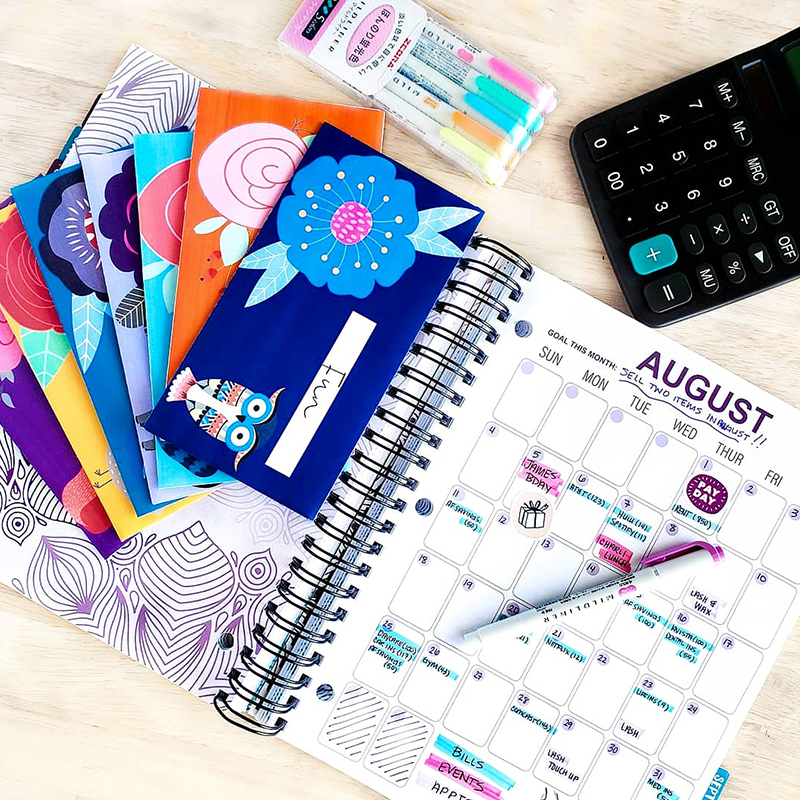
Let’s be honest: sticking to a budget is not always easy.
Sure, creating spreadsheets and developing a plan to pay off debt can help you live within your means. But what happens when the girlfriends call you for an unplanned night out? How can you possibly say “no” when your extended family calls for a last-minute family reunion?
It’s during moments like these when FOMO (the fear of missing out) is all too real.
Social media and pop culture are major driving factors behind this. It’s difficult to avoid comparing yourself to the perfectly curated images that fill our newsfeeds. It also makes it challenging to enjoy and engage in the present moment fully.
Fortunately, it is possible to live life fully and richly without breaking the bank. Here are a few tactics to consider.
Avoid “One-Time” Offers
Only purchase what you need and avoid buying items simply because they’re on sale.
Successful marketing experts specialize in consumer psychology. They take advantage of urgency and scarcity mentality to trigger consumers into spending. One-time offers and limited-time deals are designed to make us feel as though we’re missing out. When these emotions are activated, we’re more likely to act on impulse than on reason.

These are some of the common marketing phrases designed to trigger FOMO:
- Time: Limited-time, last time, today only, 24 hours only, deadline, countdown, etc.
- Speed: Hurry, fast, now, act now, don’t delay, approaching, quick, etc.
- Scarcity: Supplies limited, once in a lifetime, last chance, never again, etc.
- FOMO: Now, only, offer expires, exclusive, don’t miss out, etc.
If you see any of these marketing words or phrases, think twice before making the purchase.
As compelling as urgency and scarcity marketing can be, remember that businesses must continue selling these products to stay in business. There will always be another sale, another clearance rack, another “must-have.”
Prioritize Connection Over Consumption
Living within your means doesn’t mean you have to say no to social activities.
Do your coworkers want to go to happy hour? Are your girlfriends planning a night out? Do you finally have a date night without having to worry about the kids?
You can still enjoy all of these moments! However, remember that the important part is to prioritize the connection, not the activity itself.
To do this, set clear boundaries for yourself beforehand. For example, a happy hour with coworkers doesn’t mean it’s an endless night out. Is the special a buy-one-get-one-free? See if there’s a coworker willing to split that deal with you!
Likewise, a trip to the mall with friends doesn’t mean that it’s a competition to see who can spend the most. Prioritize the quality of the time you spend together. You might even think of yourself as the fashion advisor who says “yes” or “no” to a friend’s outfit. Sure, you can even try on a few outfits for fun! But this doesn’t mean you should needlessly spend just to “keep up with the Joneses.”
When you shift your mindset to prioritize connection over consumption, then going out with friends suddenly becomes less intimidating.
Save for Vacations
When people talk about savings accounts, they’re typically talking about saving for retirement, saving up for a down payment on a house, or building a rainy day fund.
However, you should also save for fun things that you would like to do in the future, like a vacation to Europe or a Disney World trip.
By strategically saving for vacations, you will be able to enjoy the trip when the time comes. Often, the stress associated with vacations can be pinpointed to a lack of financial preparation. When a trip is all paid for (thanks to your diligent planning in advance), it is easier to take advantage of that much-needed rest and relaxation.

Thanks to today’s technology, it’s easier than ever to automate the savings process. One of my favorite resources is CIT Bank. CIT Bank is an online-only bank, so they are able to pass along the savings from brick and mortar locations to customers through higher interest rates and competitive CD products!
Whatever product you choose, the key is to begin the habit of saving and to remain consistent!
Drive Used, Buy Used
One of the biggest misconceptions about living on a budget is that you can’t make any big purchases at all.
This simply isn’t true.
Rather, the goal is to spend within your means and to save for the future, including major purchases such as a car or home! If you want something brand new, ask yourself: do I really need this brand new — or do I simply want the perceived “status” that comes with a new purchase?
Purchasing a previously owned car will help save you from the initial shock of depreciation as well as a high loan payment.
Other high ticket items that you may want to consider purchasing used include:
- Gently used furniture, including dining room sets or entertainment setups
- Electronics, such as laptops or tablets
- Musical instruments (if you have any kids starting band or music lessons)
Differentiate Between Being Frugal and Being Cheap
The terms frugal and cheap are sometimes used interchangeably, but they are completely different words with entirely different mindsets behind them. A cheap mentality can make the feelings of FOMO worse, whereas focusing on frugality alleviates the worries of FOMO.
Living on a budget doesn’t mean you’re cheap. It means you’re living with a financial plan to help you achieve short term and long term goals.
Here are key differences to remember:
- Cheap means you spend less, but frugal means you spend smarter.
- Cheap means you are fixated only on the cost, but frugal means you are focused on what brings you value.
- Cheap goes for the lowest priced option no matter the alternatives, but frugal allows you to consider the various factors to help you find the best value.
In other words, being cheap can result in FOMO. But being frugal will allow you to enjoy life responsibly while also saving for you and your family’s future!

Focus on What Truly Matters
Spending money shouldn’t equate in increased happiness.
Instead, focus on the things in your life that bring you true joy. The people you spend time with, memories made, and experiences shared are what truly make life special. When you focus on these things, it’s suddenly easier to put FOMO in the backseat or even in the rearview mirror.
Living a frugal and financially responsible life shouldn’t feel like shackles. If it does, remind yourself that living within your means is actually freedom. It is freedom from stress, freedom from debt collectors, and freedom from living paycheck to paycheck. Spending less money does not mean that you’re missing out on the opportunities of life. Instead, you are laying the foundation for a healthy financial future you can be proud of!

